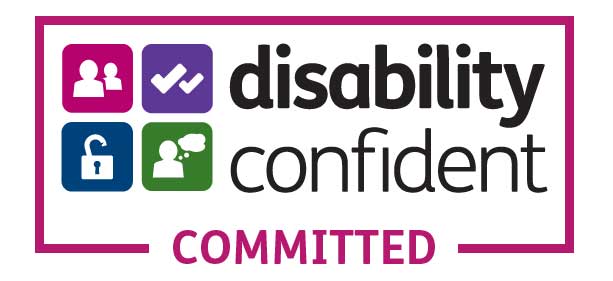Apprenticeship Mythbusting for Employers

Apprentices tend to be for people who didn’t do very well at school.
Not at all. Whilst it’s true some people perform better by ‘doing’, and a hands-on apprenticeship may suit them better, apprenticeships are available in a range of levels from 2 up to 7 – the equivalent of a degree. Some apprentices choose to complete higher level apprenticeships rather than going to university, as it allows them to gain the academic qualification as well as the work experience.
Apprenticeships are for people who want to do more ‘manual’ jobs.
This is a common misconception of apprenticeships. Yes, the apprenticeship sector has many offerings in construction, engineering, but there are many other choices across business, fitness, education and childcare.
Apprenticeships are only for school leavers (16 to 18-year olds)
Not true. Apprenticeships can be started as long as a person is over the age of 16. Apprenticeships are not just for those starting out in their career, learners may be looking for a career change, wanting to upskill or secure a new role after taking time out from work.
The government decides what apprenticeships cover in terms of learning.
Apprenticeship standards are continuing to be developed in several subject areas, and they are developed by actual employers who work together to create the standard based on what they feel learners (their employees) require in terms of the development of their knowledge, skills and behaviours.
Apprentices don’t add value to a business.
Apprentices can add significant value to a business, from spreading the workload to boosting productivity, leading to business efficiency and return on investment (ROI). A business investing in apprenticeships can also raise staff morale and bring diversity to the team.
Apprenticeships are too expensive.
Since 2017, the employer levy requires all businesses with an annual pay bill in excess of £3 million to pay a compulsory training tax, calculated at 0.5% of the pay bill. Those smaller businesses (with a wage bill of less than £3m) who do not pay the levy are required to contribute just 5% towards the cost of the apprenticeship. The government then pays the remaining 95%. The minimum wage, set at £4.15, will raise to £4.30 in April 2021, however, it is up to the employer whether they wish to pay an apprentice more.
The process to hire an apprentice is too timely.
Not at all. Eden’s Career Connect team are on hand, providing a free service which will advertise your vacancy (based on your specific needs), screen, shortlist and even support you with the interview process as we seek to find the perfect person that’s the right fit for your business.
Apprentices have to spend too much time completing their studies with the 20% off-the-job learning rule
Untrue. The 20% off-the-job guided learning hours can be an accumulation of learning activities that take place over the course of the apprenticeship. It doesn’t have to be one day a week as they are not college students requiring weekly day release for learners. Guided learning hours can be delivered in bite size chunks or scheduled for less busy trading periods. Employers are able to decide on how and when they want off-the-job training to be delivered.
Apprentices cannot be furloughed?
In actual fact, apprentices can be furloughed if the circumstances dictate that this is the right course of action. Apprentices are employed workers with a contract of employment, therefore the same rules support and protect them too.
According to HMRC, ‘Apprentices can be furloughed in the same way as other employees and they can continue to train whilst furloughed.’ This means that although they can’t perform work duties, apprentices can remain an employee and continue with their training. Apprentices working more than 33 hours a week are entitled to the same benefits as everyone else in the workplace, including sick pay entitlement, at least 20 days paid holiday a year and statutory maternity or paternity pay and maternity or paternity leave
An apprentice can only work on a full-time basis
Apprentices should work for a minimum of 30 hours a week and a maximum of 40. Time spent off the job in training is included as part of the 20% off the job training rule.
Part-time apprenticeships can be agreed by the employer, at a minimum of 16 hours per week, for example where apprentices have caring responsibilities.
Apprenticeships are for a set period of time only
Apprenticeship funding rules state that end-point assessment can only be taken after the minimum duration has been completed, and that the minimum duration is 372 days.
An apprentice must have a contract of employment in-place long enough for them to complete their apprenticeship successfully. Therefore, the minimum duration for an apprenticeship is 53 weeks and one day. The apprentice may take longer than this timescale to complete their apprenticeship based on other factors, such as reduced contracted hours or additional learning needs, which in turn may increase the programme duration. This would be agreed with the employer at the start of the programme.
Apprenticeship certificates must be issued by the employer
This isn’t a ‘must’ and is usually agreed between the training provider and employer.
The training provider will receive an apprentice’s certificate once they have successfully passed the apprenticeship standard end point assessment. The certificate can typically take up-to 12 weeks to arrive following a period of quality assurance-based moderation, which is carried out by the independent end point assessment organisation.
A business cannot take on an apprentice if they have a degree
This is not true. If a person already has a degree, they can either apply for a degree apprenticeship at postgraduate level, or at graduate level in a different field to their degree, as long as the apprenticeship involves a significant amount of new learning or updating outdated skills.



















